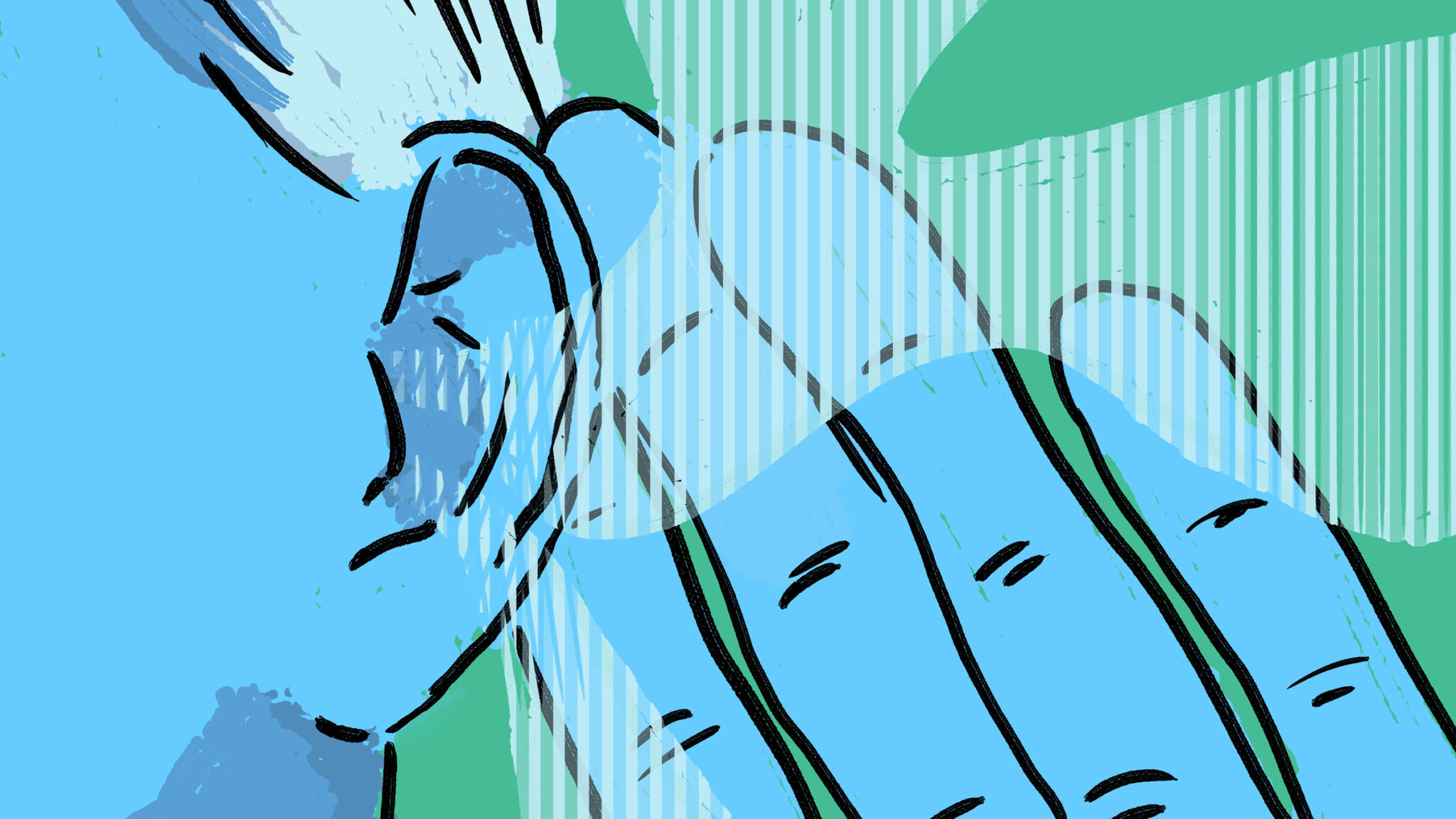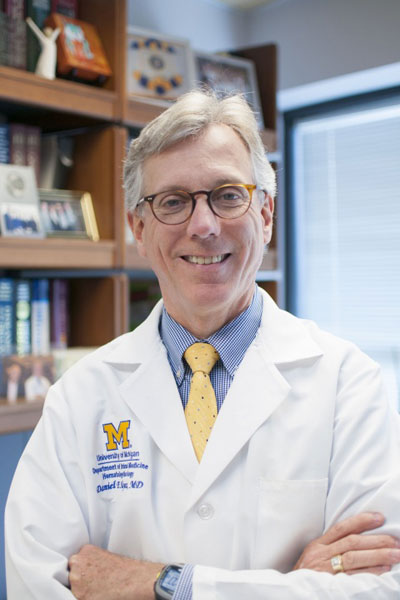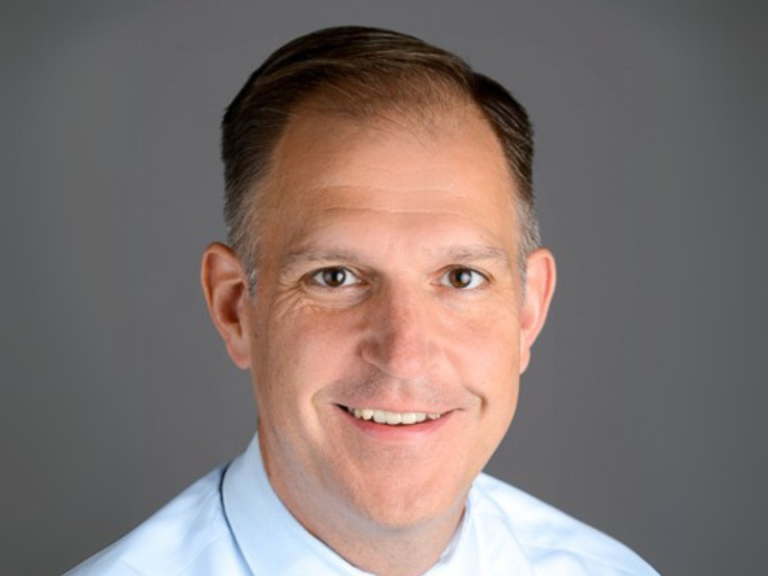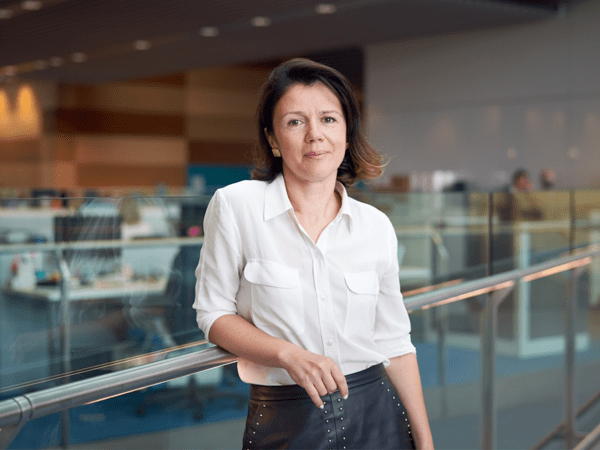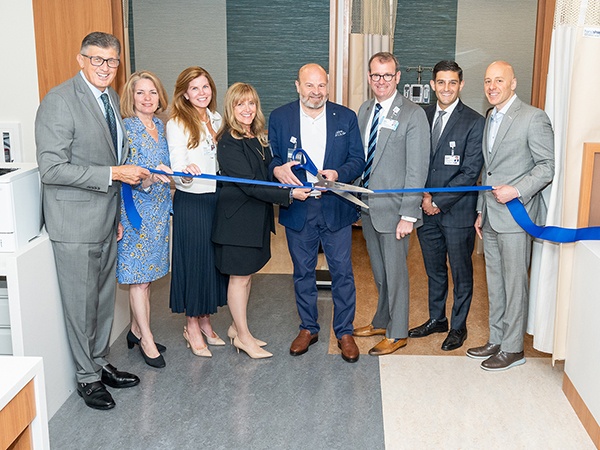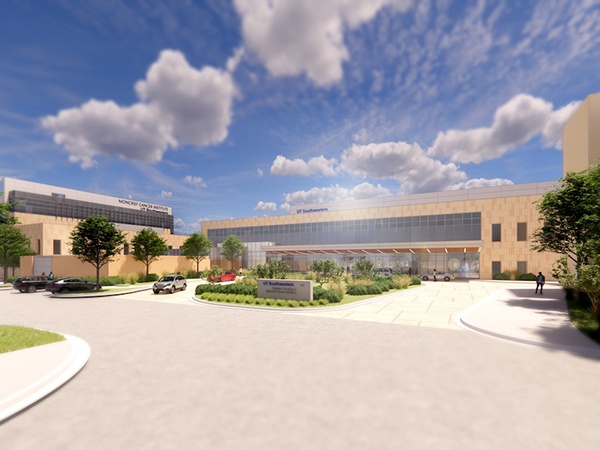Daniel Hayes is racing to record the stories of oncology’s greats.
In May 2018, Hayes, the Stuart B. Padnos Professor of Breast Cancer Research and professor of internal medicine at University Michigan Rogel Cancer Center, started to conduct interviews with friends, mentors, and colleagues.
The podcasts are published in the Journal of Clinical Oncology’s Cancer Stories.
“I try to make it—if you could be in a cab for 20 minutes with one of your heroes, like we do if you like sports, or medicine, or literature, or music, and just say—’How did you do this? What made you think you could even do this sort of thing?’” Hayes said to The Cancer Letter.
Hayes’s podcast, a program of the American Society of Clinical Oncology, is a part of a larger effort to commemorate the history of the cancer field in 2021.
Hayes is a member of the editorial board of the Cancer History Project, a collaborative historical resource created by The Cancer Letter that places—in perpetuity—a vast collection of archives and historical analysis within easy reach of researchers, medical professionals, students, policy-makers, and survivors. ASCO is a contributor to the Cancer History project, as well as a platinum sponsor.
Cancer centers, advocacy groups, professional societies, pharmaceutical companies, and key players in oncology are invited to join our growing list of contributors. To inquire, contact admin@cancerhistoryproject.com.
NCI, too, is commemorating the National Cancer Act in an effort to build a coalition of support for cancer research, including raising the payline to 15% by 2025. NCI’s tagline for the campaign—“Nothing will stop us”—is available to cancer centers, professional societies, and others. NCI is also a contributor to the Cancer History Project, with over 50 published articles—all primary sources.
The Cancer History Project is highlighting oral histories of cancer research, including a selection of National Cancer Act oral histories and numerous videos. A growing list of books is also available.
In his podcasts, Hayes tries to avoid the minutiae.
“I try to tease out of them, ‘What were the things that made you believe you could do this? What were the obstacles? How did you get around them?’” Hayes said.
Hayes has collected an unabridged history of sorts—in one instance, the late Emil J Freireich, a pioneer in the treatment of chemotherapy and professor in the Department of Leukemia, Division of Cancer Medicine at MD Anderson Cancer Center, divulged that he stole and sold hubcaps to help pay for medical school.
MD Anderson is also a contributor to the Cancer History Project.
“He told me that story. I said, ‘I can’t believe this. The father of my field was a juvenile delinquent.’”
Hayes’ biggest obstacle is time. He was fortunate to have interviewed Clara Bloomfield, Distinguished University Professor at The Ohio State University, former director and longtime senior adviser to The Ohio State University Comprehensive Cancer Center – James, just before she died.
“Clara reluctantly agreed at some point, and said ‘Why do you care about me?’ and I said, ’Because, you’re famous. That’s why.’ We had an interview that was, if you listen to it—at times it was contentious,” Hayes said. “And then, sadly, about a week or two weeks before we got it edited—and about two or three weeks before we got it posted, she fell and had died. That was really too bad, because I think she would’ve enjoyed hearing it.”
Bloomfield died in March 2020.
There are many people Hayes didn’t get to in time—“I wanted to get Jimmie Holland, but unfortunately, she and Jim [Holland] both died before I had a chance to do that.”
Bernard Fisher, who revolutionized the field of breast cancer, died podcastless in October 2019.
“Unfortunately, Bernie Fisher was still alive, but was unable to be interviewed, because of his age (he was 99 years old when the podcast program started),” Hayes said. “To think about what Bernie Fisher did to get surgeons to run randomized trials, which they’d never heard of—specifically to challenge their dogma, and to challenge what Halsted said.”
Hayes likes the storytelling format of a podcast.
“It’s important for, especially our young doctors, to know that what they’re doing didn’t just suddenly appear. It took a lot of work and courage. I think that becomes inspirational,” Hayes said. “The fellows don’t have time to learn history—this is a good problem. There’s so much about oncology to know now. Whereas, when I trained, basically there were five or six diseases that we could actually treat. Now, there’s all kinds of stuff. It takes a lot to learn all that.”
Hayes spoke with Alexandria Carolan, a reporter with The Cancer Letter.
Alexandria Carolan: Let’s jump into it then. I spoke with you a while back, actually, when I was at ASCO. We ran a story in ASCO Connection, super brief, just about the podcast. I remember the reason why you got the idea for it and got started was super interesting. Could you talk about that?
Dan Hayes: I, just by happenstance, am an oncologist. I had little or no interest in being an oncologist. I was going to be an endocrinologist. In my third year as a medical student, I was assigned to the oncology ward at University Hospital at Indiana University—which is where I was a medical student. I recall thinking, “This is going to be a terrible month.” In fact, I went to the chief resident and said, “Can I do anything else besides oncology?” I told him I’d do GI, which in my opinion is the absolute worst. He said, “Shut up. You’re a med student, go do what you’re told.” The attending physician that month was Dr. Larry Einhorn. This was 1977, and he was busy proving he could cure testicular cancer with cisplatin. It was just an unbelievable month.
These young men were coming in, and their X-rays looked like that wall—and then they’d come in a month later, and look like that window. We didn’t have CT scans in those days, but we had chest X-rays. It was really exciting, and I was hooked: I would be an oncologist.
By-the-way, Dr. Einhorn’s first cure, is a social friend of mine. John Cleland. And, he’s gone on to be married, and have several children, and had a great career as a high school teacher, and a track and field coach, and it’s really a great story. The reason I’m telling you all of this. I got them on one of the podcasts.
Fantastic.
DH: Of course, they’ve remained very close through the years, and Dr. Einhorn and I have remained close, and John and I remain close. So, the three of us triangulate. I just sort of threw some raw meat on the table with a couple of questions, and let them talk to each other. And it’s just incredible. What is it, 40 years later now? He was cured in 1973. So, almost 50 years later.
And they were talking about what it was like then, and some of the stories. I think that’s a really great underlining of this whole story.
After medical school, I did my residency at UT Southwestern in Dallas, and subsequently I got into what was then the Sidney Farber Cancer Institute for my fellowship. At the time, Emil “Tom” Frei was the physician chief, and remained so for 12 of my 14 years there. As you probably know, he and Emil J. Freireich, and the late Jim Holland were all together at the NCI, and put together the first clinical trial combination therapy for childhood ALL, which led to going from a 0% cure rate, when people were just getting one drug, and a patient would progress, and they’d try another one, and a patient progressed, to a 10% cure rate. Now, it’s 95% , or close to it.
That was really the first great step forward. Dr. Frei was one of my mentors in many ways for most of the time I was there. He and my laboratory mentor, Don Kufe, introduced me to Dr. Holland. I got to know Dr. Holland very well through the years, and his wife Jimmie C. Holland, who had started the field of psycho-oncology. A real power couple. My brother’s a psychiatrist, and he happened to work with Jimmie quite a bit. So, again then, I fell into another situation in which I was associated with pioneers in our field.
At DFCI, the division chief was George P. Canellos, who was part of the so-called “gang of five” at the NCI that put together MOPP and CHOP. Dr. Canellos also developed CMF for breast cancer, all which had a huge impact on the field. They showed you could cure Hodgkin’s Disease with MOPP, and that you could cure non-Hodgkin’s lymphoma with CHOP, and CMF was one of the first combination treatments for breast cancer. Subsequently, Dr. Gianni Bonadonna took CMF back to Italy and proved that it was effective in the adjuvant setting.
Also at Dana Farber, the fellowship director for 25 years was Dr. Robert J. Mayer, and you look at the people he trained during that time—they are now cancer center directors, division chiefs, Nobel Prize winners (2019: William G. Kaelin). It’s really remarkable. And I was just sort of in the middle of all this maelstrom that was going on.
Fast forward 35 years, when I became president of ASCO, two things occurred to me.
One: that I’ve been in the middle of a lot of really great people through the years, just being in the right place at the right time.
Two: that these are the people that started our field. There aren’t many fields that are sufficiently young enough that people who started the field are still alive.
Also, just as I was elected president, I lost my hearing in my left ear. I ended up getting a cochlear implant towards the end of my presidency. I’m not looking for sympathy. I’m very open to sympathy—it’s worked out great. But this is directly related to the podcast program.
My physical therapy for my cochlear implant was listening to podcasts. I’d never heard of a podcast, I guess because I’m a little over 65. I began to listen to all podcasts I could get my hands on, including several ASCO podcasts. I initially listened to ASCO podcasts about clinical issues, and about government policy issues. For example, our CEO Cliff Hudis just did a couple of really great ones. And then I listened to the Cancer Stories podcast series that Lidia Schapira has done such a great job in establishing.
Further, I began listening to all the NPR podcasts, and finally I said, “Gee, if Terry Gross can do this, so can I.” And so I got ASCO, and Lidia, to agree to allow me to serve as a host, and I gave them a list of people I want to interview—and ASCO also provides the services of a really talented staff person, Ashley Ketelhut, who has been the key to making the podcasts happen.
There are around 400 ASCO staff, so when I was president I tried but I didn’t get to meet everybody. I didn’t know Ashley, but I do now. She’s been just terrific. I keep thinking she’s going to complain, because it’s been a lot of work for her. But, she hasn’t. She puts us together, and she records them.
Basically, I try to make it—if you could be in a cab for 20 minutes with one of your heroes, like we do if you like sports, or medicine, or literature, or music, and just say, “How did you do this? What made you think you could even do this sort of thing?” sort of thing.
People can listen on their way to work—20 minutes. Principally, I ask the same questions, but I do some homework beforehand, and Google people and figure out what they are and what they’ve done, who they are. More than I knew about them before. And then try to tease out of them, not just kind of dry… “Well, we saw a 14% difference in overall survival in the P-value,” well, I don’t care about that. I try to tease out of them, “What were the things that made you believe you could do this? What were the obstacles? How did you get around them?”
I think I told you that probably my favorite story is from Dr. Freireich. He got into medical school when he was 16. He had grown up basically in a ghetto in Chicago, living in a ghetto with his mother. His mother was ironing clothes to support him and his family. And he needed money, so he started stealing hubcaps, selling hubcaps so he could go to medical school.
He told me that story. I said, “I can’t believe this. The father of my field was a juvenile delinquent.”
One of the other stories I really enjoyed was told by Dr. Saul Rosenberg. He trained in radiation oncology at Memorial Sloan Kettering, back in the ‘50s, maybe early ‘60s. Then he went to Stanford to work with Dr. Henry Kaplan. Dr. Kaplan had demonstrated that you could cure Hodgkin’s Disease with radiation oncology, and he wrote the book on Hodgkin’s disease that’s just incredible. Sadly, he passed away many years ago.
But anyway, Dr. Rosenberg went out to California to work with Dr. Kaplan, but before he did he heard there was this guy named Karnofsky, who was giving chemotherapy at MSK—and I think you’re aware of this, but of course ASCO’s most prestigious award is named after Dr. Karnofsky.
Dr. Rosenberg went to him and said, “I want to learn how to give chemotherapy.” And in those days it didn’t take long to learn how to give chemotherapy, because there wasn’t much chemotherapy to learn about. And then he went to Stanford, and he went to Dr. Kaplan and said, “I know you are curing people with radiation, but we need to start giving chemotherapy too. Because, I was just on the East Coast, and they’re curing people who have metastasis beyond the field you can treat with radiation.”
And to his credit, Dr. Kaplan apparently really embraced this, said, “I’m actually in favor of it. Do what you need to do.” Well, he went to the chair of medicine, who said, “This chemotherapy is crazy. It makes people sick, doesn’t help anybody, and you’re not even an internist. You’re a radiation oncologist, and forget it. We’re not going to do this.”
But he got a hematologist to give a room in the hematology clinic, and so, he set up a clinic room. He told me that he would see patients in the room, and if he thought they needed chemotherapy, he had a chair in the hallway outside their room with an IV pole. He’d mix up the chemotherapy himself, because there were no oncologic nurses.
He’d mix up the chemotherapy himself. Then he would put the patient in the chair, start the IV himself, and drip the chemotherapy in while he saw the next patient in the room.
I said, “You know, that’s a little different than what the fellows learned about these days.” This is exactly the kind of story I want.
I really enjoyed doing this. I’ve got some great stories. I tried to branch out from just the people who started giving chemotherapy to some of the other issues, like anti-estrogen therapy for breast cancer. Dr. Trevor Powles in Great Britain was really great on that one. The other thing is, the people that started the fields of translational research, for example, Drs. Clara Bloomfield, John Minna, and Marc Lippman.
Right, we ran her obituary last year (The Cancer Letter, March 6, 2020).
DH: Clara and I worked together in CALGB. Because, I started doing translational science stuff in breast cancer, and since she was doing it for leukemia and lymphoma, and kind of let me squeeze in.
Clara was a really tough cookie. I loved her, but she was tough. She and I had several knock down-drag outs, where then we’d go out and get a drink. So I emailed her and said, “Clara, I want to interview you for this.” She said—”well, what do you want to do that for?” “Well, because you started the field of translational science, arguably—in oncology, in leukemia and lymphoma—and you’re one of the few women who was at the forefront who’s still with us.”
For example, two of the really courageous pioneers in our field have both passed away long before I started the podcast series: Dr. Jane Cooke Wright was one of the founding members of ASCO, but she passed away in 2013. [A collection of archives about women in oncology is available here.]
Dr. Janet Rowley, at University of Chicago, started the field of cancer genetics, but she died several years ago. And as I said, I very much wanted to interview Jimmie Holland, but unfortunately, she and her husband Jim both died before I had a chance to do that.
Clara reluctantly agreed at some point, and said “Why do you care about me?” and I said, “Because, you’re famous. That’s why.” We had an interview that was, if you listen to it—at times it was contentious. I would say, “Well, what made you decide that?” “Oh, I don’t know. I can’t remember.”
I said, “Yes you can. Come on.” It was actually a pretty good interview. I have to say.
That’s amazing.
DH: And then, sadly, about a week or two weeks before we got it edited—and about two or three weeks before we got it posted, she fell and had died. That was really too bad, because I think she would’ve enjoyed hearing it.
So, I got to interview her. I’ve also interviewed Marc Lippman, who was one of the first translational scientists in solid tumors with breast cancer. He and the late William L. McGuire really changed the field, showing that observations in the laboratory (in their cases, the importance of estrogen receptor in breast cancer culture) could have profound effects in the clinic.. John D. Minna did the same thing in lung cancer. There are many others. I think I have, actually I was just going to count them when I came online here.
I began listening to all the NPR podcasts, and finally I said, ‘Gee, if Terry Gross can do this, so can I.’
As I noted, I haven’t just interviewed medical oncologists. Given his incredible contributions to the field, I really wanted to interview Dr. Bernie Fisher. Unfortunately, Bernie Fisher was still alive, but was unable to be interviewed, because of his age (he was 99 years old when the podcast program started). To think about what Bernie Fisher did to get surgeons to run randomized trials, which they’d never heard of—specifically to challenge their dogma, and to challenge what Halsted said.
So, I got hold of Norman Wolmark, who was his mentee and now runs the NSABP (now the NRG) and he basically took Dr. Fisher’s position when he stepped down as director of the group.
I called Norm and said, “This is insulting. Because, you in your own right should be interviewed. But, I really want you to talk about Dr. Fisher. Is that okay?” And he went, “Oh, of course,” and he was great. That’s a really good interview too. Because, he talks a lot about the early days of the NSABP, and how he got all these surgeons to agree to challenge dogma. I don’t think these young doctors realize how courageous that was, what Bernie Fisher did (The Cancer Letter, Oct. 25, Nov. 1, 2019). Norman’s interview is just terrific—so much history and he tells it so well.
I’ve also interviewed radiation oncologists other than Dr. Rosenberg, including Drs. Samuel Hellman and Allen Lichter. Dr. Lichter gave me a great interview, mostly about the history of radiation oncology. Not so much about ASCO. I’m going to circle back with him and do one specifically about ASCO, since he was the CEO for a decade.
The other one that I just did was with Patricia Ganz. Dr. Ganz is about my age or just a little older—so she’s not one of the early, early pioneers, but she started the field of survivorship—and she and Jimmie Holland really initiated the field of non-oncologic therapy; in other words, treating the patient and not just the cancer. All of us have learned a lot from Patty Ganz, and I hope the listeners enjoy her interview as much as I did.
So, you’ve been doing this for about two years now?
DH: Actually, I was just thinking, “How long have I been doing this?” You know what? The first one I did was Dr. Hellman. Let me just see what date that is. About two and a half years. It was May of 2018.
And how often is the podcast posted?
DH: Not on any kind of specific timeline. About every two months or so.
It sounds like it does really well. It’s great to focus on cancer history at the moment because NCI is doing its commemoration of the National Cancer Act. Now is a good time to talk about it.
DH: Yeah, possibly one of my favorite interviews was with Vince DeVita, who really led the “gang of 5” at the NCI that I mentioned earlier, along with Drs. George Canellos, Bob Young, Bruce Chabner, and Philip Schein., In the interview with Dr. DeVita, we talked about the battles to get the National Cancer Act signed, since he was the NCI director when President Nixon signed it.
He’s got lots of good stories. He just wrote a book, so many are in it, but one of the stories that he told me was about Mary Lasker.
The Lasker Award, named after her and her husband, is the so-called America’s Nobel Prize. Indeed, several Americans who have won the Nobel Prize for Medicine and Physiology have won the Lasker Award prior to that. Her husband was an industrialist and they were quite wealthy, and they lived in Boston. They were very supportive of Dr. Farber as he was putting together the Sidney Farber Cancer Institute. And they were also very big donors to the Republican party.
So, there are two stories here.
One, it’s not in my podcast, but she got Dr. Farber, and they went down and suggested to President Nixon that he better sign the National Cancer Act. And President Nixon, being a good Republican, said, “No. That’s going to cost money. We’re not going to do that.” And she apparently said, “That’s a shame. Because, all of my friends are giving money to your re-election campaign, and I just don’t think they’re going to be able to now.” And so he signed it.
She called Dr. DeVita one morning when he was the Director of the NCI and said, “My chauffeur’s going to pick you up at 10, and we’re going to have lunch with Mrs. so-and-so here in DC,” and Vince said, “Well, I’m kind of busy. I’ve got a full schedule, I’m director of the cancer center,” and on and on.”
She said, “No, this is going to be really important to the Cancer Act,” and so, he agreed. He went to lunch, and there was a nicely dressed, older man who was there, and they had a nice lunch together, and he asked really good questions. Vince answered them to the best of his ability, and then the gentleman excused himself and left.
Dr. Devita assumed this must be a senator, or a U.S. representative. He didn’t know who he was. He said, “Who was that?” and she said, “Well, that was Representative so-and-so’s chauffeur.” And he said, “I dropped everything and came over to have lunch with a chauffeur?” And she said, “Yup. He is the chauffeur’s Representative so-and-so’s wife all over DC—wherever she wants to go, and he’s head of the committee that the bill is going through now. We need to get that committee. And I’m certain that she will tell him he has to sign it, and we’ll get that out of committee so the president can sign it.”
Those are the kind of stories I wanted to get on this. It’s been a lot of fun.
Why is it important to document this history? What can we learn?
DH: George Santayana once said that, “Those who do not remember the past are doomed to repeat it.” Besides, I like history anyway, and I like good stories.
I love to listen to the Moth on NPR. I like this kind of stuff. I think it’s important for, especially our young doctors, to know that what they’re doing didn’t just suddenly appear. It took a lot of work and courage. I think that becomes inspirational.
I don’t think we teach history very well. Part of the problem is that there’s so much to learn now. The fellows don’t have time to learn history—this is a good problem. There’s so much about oncology to know now.
To think about what Bernie Fisher did to get surgeons to run randomized trials, which they’d never heard of—specifically to challenge their dogma, and to challenge what Halsted said: “This is how you have to do it.” 75 years later, Fisher said, “I don’t think so.” And got a bunch of surgeons to do randomized trials. Plus, not only did he randomize trials to challenge their dogma, it challenged what they got paid to do.
I think that young doctors need to hear how all of this got started. The stories of giving combination chemotherapy. When I first started, I told some surgeon I wanted to be a medical oncologist, and that the adjuvant therapy for breast cancer was just thrilling. He just recoiled at this—that we would be giving women chemotherapy, make their hair fall out, make them throw up, kill some of them, when he was curing all these people with surgery by itself.
That was sort of the dogma. Now, the surgeons love us—please, make the tumor shrink. I think these kinds of things really need to be there in the minds of the young people. I don’t think we teach history very well. Part of the problem is that there’s so much to learn now.
The fellows don’t have time to learn history—this is a good problem. There’s so much about oncology to know now. Whereas, when I trained, basically there were five or six diseases that we could actually treat. Now, there’s all kinds of stuff. It takes a lot to learn all that.
Is there anything else you’d like to add to this story?
DH: Well, there are two things. One is I hope more people will go listen, and I hope they enjoy it as much as I am. It doesn’t take too long to listen to any of these, and you can listen to them on your way to work, or having morning coffee, whatever, since these days nobody drives to work anymore.
The other is, I’m open to suggestions. If people have suggestions they’d like to hear have interviewed, I can’t guarantee I can do them, but I’m very open. I pretty much interviewed almost everybody on my original list.
I mean, you’ve done 20 interviews over two and a half years. That’s really something.
DH: But again, a lot of these are my friends. Well, I knew Saul Rosenberg, but not very well. I only knew him because he always goes to the business meetings at ASCO. The only people at our annual business meetings are the ASCO board members, the staff, and a few scattered people who probably wandered in and realized it was a free lunch.
That sounds right.
DH: Saul Rosenberg is there every year. The only other interviewee I didn’t really know well was Dr. Freireich. I had met Dr. Freireich a couple times, because he and Dr. Frei were really close friends, and Dr. Frei used to bring him up to the Dana Farber every once in a while to give a talk. Before the interview, I thought, “Boy, I hope I can get him to even talk.” I wasn’t sure if that was going to be a good one. I couldn’t get him to shut up. He went on for an hour—and was just terrifically entertaining!
That’s probably your biggest problem.
DH: Yeah, it was great. Just like me and you.
I hope that people enjoy it, and I’d love to do some others if they get good names of people. I mean, I’m not looking for people who are considered so-called giants now. I’m interested in folks who’ve really challenged dogma, and a generation above me, basically. Even two. I mean, Dr. Frei is two generations above me.
This was very helpful, and I think your podcast sounds really interesting. Thank you for sharing.


